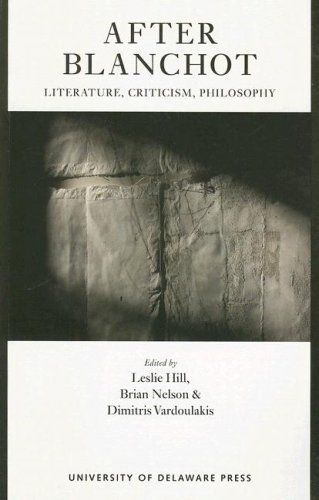
After Blanchot Literature, Criticism, Philosophy
What does it mean to come after Blanchot? Three things, at least. First, it is to recognise that it is no longer possible to believe in an essentialist determination of literary discourse or of aesthetic experience. All this has disappeared; and there is no way back. Second, there is the question of history. What is Blanchot's legacy to us, his readers? Any name, however, irreplaceably singular, is always already preceded, limited, challenged even, by the abiding anonymity of the person, animal, or thing it claims to name. Every name is necessarily impersonal, anonymous, other. Blanchot "after Blanchot," then, can best he understood in the sense of that which is "according to Blanchot"--and that is nothing other than the infinite process of reading and rereading Blanchot: without end. Here, a third meaning to the phrase "after Blanchot" comes into view. For if we come after Blanchot, it is surely because Blanchot is still before us, still in front, still in the future, still to come.